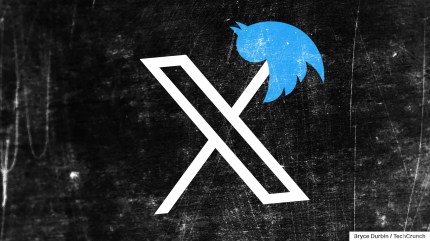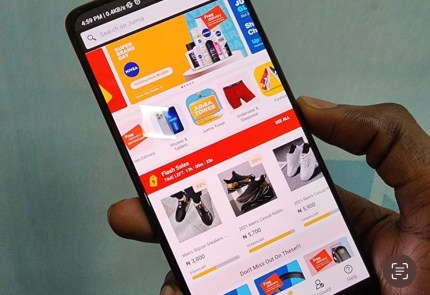Five social media CEOs were sworn in on Wednesday for what could have been the most eventful children’s online safety hearing yet. But even with some of tech’s most powerful figures under oath, the four-hour hearing was anti-climactic.
The Senate subpoenaed recently appointed X CEO Linda Yaccarino, Discord’s Jason Citron and Snap’s Evan Spiegel to appear before the Senate Judiciary Committee, but Meta founder Mark Zuckerberg and TikTok’s Shou Chew agreed to appear without the threat of legal consequence. Yaccarino, Citron and Spiegel all testified for the first time, while Chew faced the committee last year. But for Zuckerberg, this hearing was his eighth rodeo, and it wasn’t an easy one.
These CEOs certainly have a lot to answer for. Chat-based platforms Snap and Discord have come under fire for facilitating sextortion crimes and lethal drug dealing, while Meta has been implicated in a laundry list of high-stakes scandals regarding the mental health of teens on its platforms. Meanwhile, TikTok’s algorithmic feed has been found to surface content related to self-harm and suicide, and X has become a breeding ground for white supremacy and extremism.
Some senators remarked that at today’s hearing, the chamber was as packed as it’s ever been in their careers.
“We have a large audience, the largest I’ve seen in this room today,” stated Senator Dick Durbin (D-IL), who has served on the Senate Judiciary Committee for over 20 years.
Zuckerberg in particular drew immense ire, perhaps since Meta has such a long track record of safety failures. Earlier this month, TechCrunch reported on internal Meta documents that showed multiple instances of employees raising concerns about child exploitation on the company’s messaging apps, to no avail; and The Wall Street Journal has published multiple reports about the negative impact of Instagram on teenage girls’ mental health, among other concerning revelations. The Senate floor was packed with the families of children who have been victims of sexual exploitation, mental health issues and drug overdoses via social media platforms, including Facebook and Instagram.
In the most dramatic moment of the hearing, Senator Josh Hawley (R-MO) zeroed in on Zuckerberg, asking him to apologize to these families.
“There’s families of victims here today. Have you apologized to the victims? Would you like to do so now?” Hawley pressed, reminding Zuckerberg that he was on national television. In a rare moment for a Senate hearing, Zuckerberg stood up, turned around and faced the audience to address them directly, while some parents held up photos of their deceased children in the air.
“I’m sorry for everything you have all been through,” Zuckerberg said. “No one should go through the things that your families have suffered. This is why we invest so much, and are going to continue doing industry-leading efforts to make sure that no one has to go through the types of things that your families have had to suffer.”

Hawley proceeded by asking the CEO directly if he would set up a fund with his own money to pay the families of children who have been severely harmed from abuse they’ve experienced on Meta platforms. Zuckerberg started to tell the senator that these issues are complicated, before he was cut off, and Hawley repeated the question. Both Zuckerberg and Hawley became increasingly agitated.
“Well, senator, we’re doing an industry-leading effort, we’re building AI tools that –”
“Oh, nonsense. Your product is killing people. Will you personally commit to compensating the victims? You’re a billionaire.”
Zuckerberg did not make that commitment.
Legislative efforts
As multiple senators try to push legislation to regulate children’s online safety, much of the questioning at today’s hearing revolved around whether each CEO would support any given bill.
Of all these bills, the Kids Online Safety Act (KOSA) seems to have the most momentum. Sponsored by Senators Richard Blumenthal (D-CT) and Marsha Blackburn (R-TN), the bill would require social platforms to take further steps to protect children online. Though the bill has been revised, critics worry about its potential impact on internet privacy and access to information. For instance, the bill gives individual state attorneys general the right to constitute what internet content is appropriate for kids. Blackburn has already implied that KOSA could be used in this way to prevent children from accessing information about transgender people.
Privacy advocates also call into question the potential for KOSA to jeopardize end-to-end encryption, and surveil and censor adults’ experiences online.
“Ultimately, no amendment will change the basic fact that KOSA’s duty of care turns what is meant to be a bill about child safety into a censorship bill that will harm the rights of both adult and minor users,” the Electronic Frontier Foundation wrote in a recent blog post.
Senator Blumenthal asked all five CEOs if they would support KOSA. Snap’s Evan Spiegel and X’s Linda Yaccarino both voiced their support for the bill, while the CEOs from Meta, Discord and TikTok wavered.
“There are parts of the act that we think are great,” said Discord CEO Jason Citron, nodding toward the potential privacy issues. “We very much think that a national privacy standard would be great.”
As Spiegel affirmed Snap’s support, Blumenthal added that Microsoft just announced it would support KOSA as well. But Chew would not pledge his support as the bill stands.
“With some changes, we can support it,” Chew said. When pressed further, he elaborated, “We’re aware some groups have raised some concerns.” Before he could finish his thought, Blumenthal said he would take that answer as a no.
Chew is correct that KOSA has spurred controversy among various activist organizations.
“Dozens of human rights, civil liberties, LGBTQ+ and racial justice groups oppose the reckless legislation being proposed in today’s hearing,” Fight for the Future Director Evan Greer said in a statement to TechCrunch. “Hundreds of parents of transgender kids have specifically urged lawmakers to consider alternatives to KOSA.”
Zuckerberg was able to voice a bit more about these concerns before he was cut off.
“These are nuanced things. I think that the basic spirit is right, and the basic ideas in it are right, and there are some ideas that I would debate how to best –”
“Unfortunately, I don’t think we can count on social media as a group or Big Tech to support this measure,” Blumenthal said.
Wasted time
It’s an immense opportunity to have five social media leaders sitting before you, legally obligated to answer your questions in truth. But, as happens in many Senate hearings, some senators used their time to advance their own political agendas, or to naively bully panelists.
When TikTok CEO Shou Chew testified before Congress last year, he was prodded on TikTok’s relationship to its Chinese parent company ByteDance, and by extension, its connection (or lack-thereof) with the Chinese Community Party (CCP). While some reports have shown evidence of Chinese ByteDance employees accessing American TikTok data, there is no known evidence of that data being obtained by the CCP.
Chew spoke about these issues last year in a five-hour hearing in front of many of these same senators. But they chose to continue questioning Chew about his own personal political allegiances.
Senator Tom Cotton (R-AK) was particularly confrontational in his approach.
“Have you ever been a member of the Chinese Community Party?” asked Cotton.
“No, senator, I’m Singaporean,” replied Chew.
“Have you ever been associated or affiliated with the Chinese Community Party?” Cotton asked.
“No, senator, I’m Singaporean,” Chew repeated.
Cotton’s questions to Chew revolved more around his personal history than his role as CEO of a social media platform with over a billion users. Cotton acknowledged Chew lives in Singapore, but asked of what nation he is a citizen (Singapore). He also asked what nations Chew possesses a passport from (Singapore). When Cotton asked if Chew had ever applied for Chinese citizenship, he reminded the senator that he served for two and a half years in the Singaporean military. While working at ByteDance, Chew lived in Beijing for five years, but he also lived in the United States while attending Harvard Business School, where he met his wife, who is American.
Cotton, as well as Senator Ted Cruz (R-TX), went as far as to ask Chew about what happened in Tiananmen Square, a topic that the Chinese government forbids its citizens from discussing.
“You said earlier in response to your question [from Cruz] that what happened at Tiananmen Square in June of 1989 was a massive protest. Anything else happened in Tiananmen Square?” Cotton asked.
“Yes, I think it’s well-documented,” Chew replied. “There was a massacre.”
These pointed lines of questioning ate up significant chunks of time in a hearing that had the potential to yield helpful discussion about online safety. Instead, the hearing was a blown opportunity.
By the end of the hearing, Senator Thom Tillis (R-NC) summed up the situation quite well.
“Every year, we have an annual flogging. And what materially has occurred over the last nine years?”
Microsoft, X throw their weight behind KOSA, the controversial kids online safety bill
Mark Zuckerberg defends teenage creators’ right to public Instagram accounts































Comment